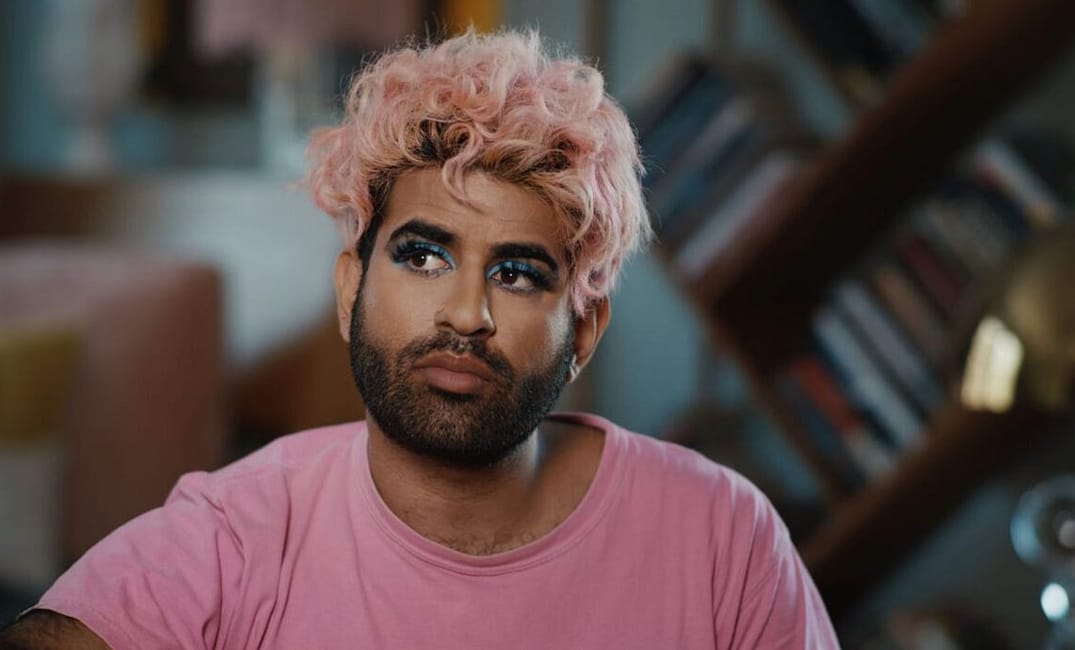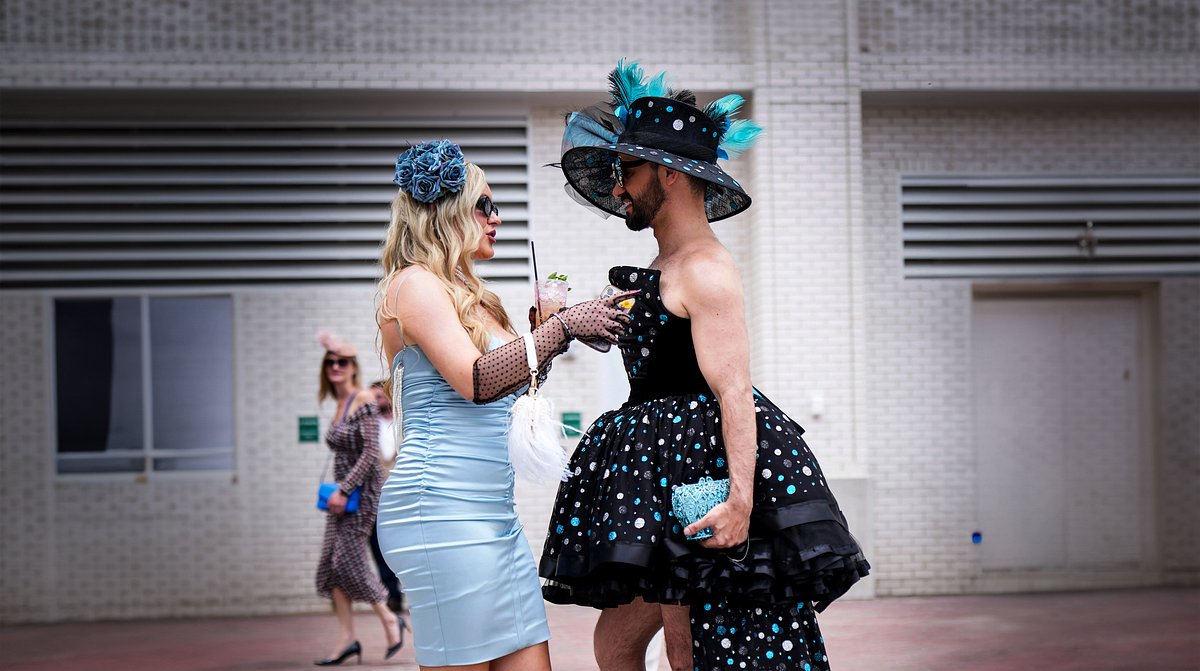Surprising connections link Alok Vaid-Menon — the nonbinary poet and comedian — to Urvashi Vaid, a prominent leader in the LGBTQ+ movement from the 1980s until her recent passing. Both members of the same Indian American family, they share a powerful approach to social change. Documentary shorts that profile each will be featured at the Frameline Film Festival this week.
I wanted to learn more about the work of these two influential LGBTQ+ figures, especially at a time when the repression of transgender people has become a national political issue; How does their work intersect and speak to our current moment? So I emailed with Alok and received some good responses to round out this review.
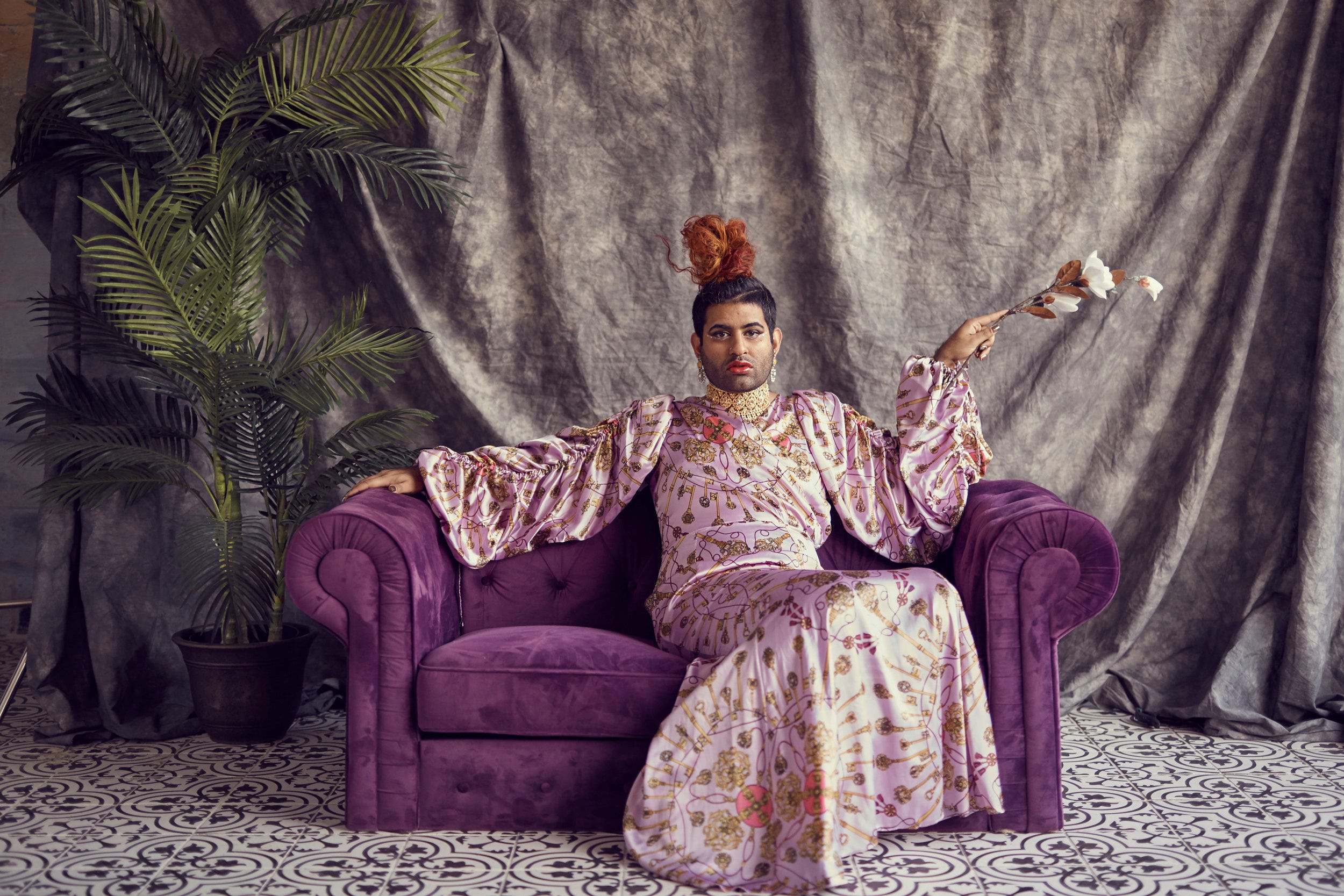
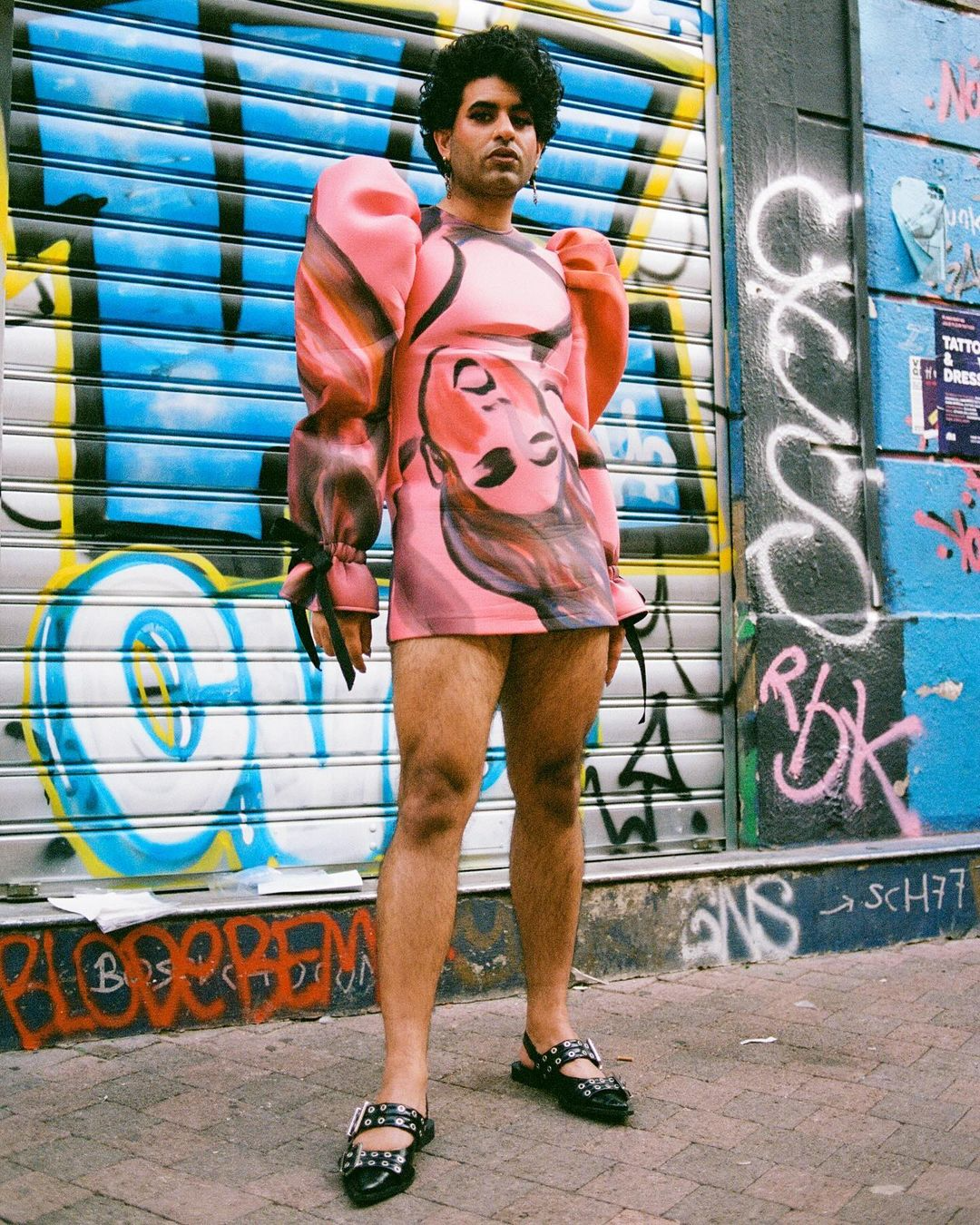
Two films screen together on June 28th — Alok and There Are Things To Do — I’ll discuss each in turn:
‘Alok’ film
Alok zeroes in on Vaid-Menon’s extraordinary ability to examine lived experiences around gender norms, and I found it moving; If the best art helps us to recognize and refuse the concepts and ideas that perniciously control our lives, then Vaid-Menon makes great art. Jodie Foster executive produced the documentary and said it “really challenged me to change too and be open to new voices and learn and transform.”
“That’s the beauty of the piece is that it really is about all of us transforming all the time and that willingness. There’s such joy to that,” she told IndieWire.
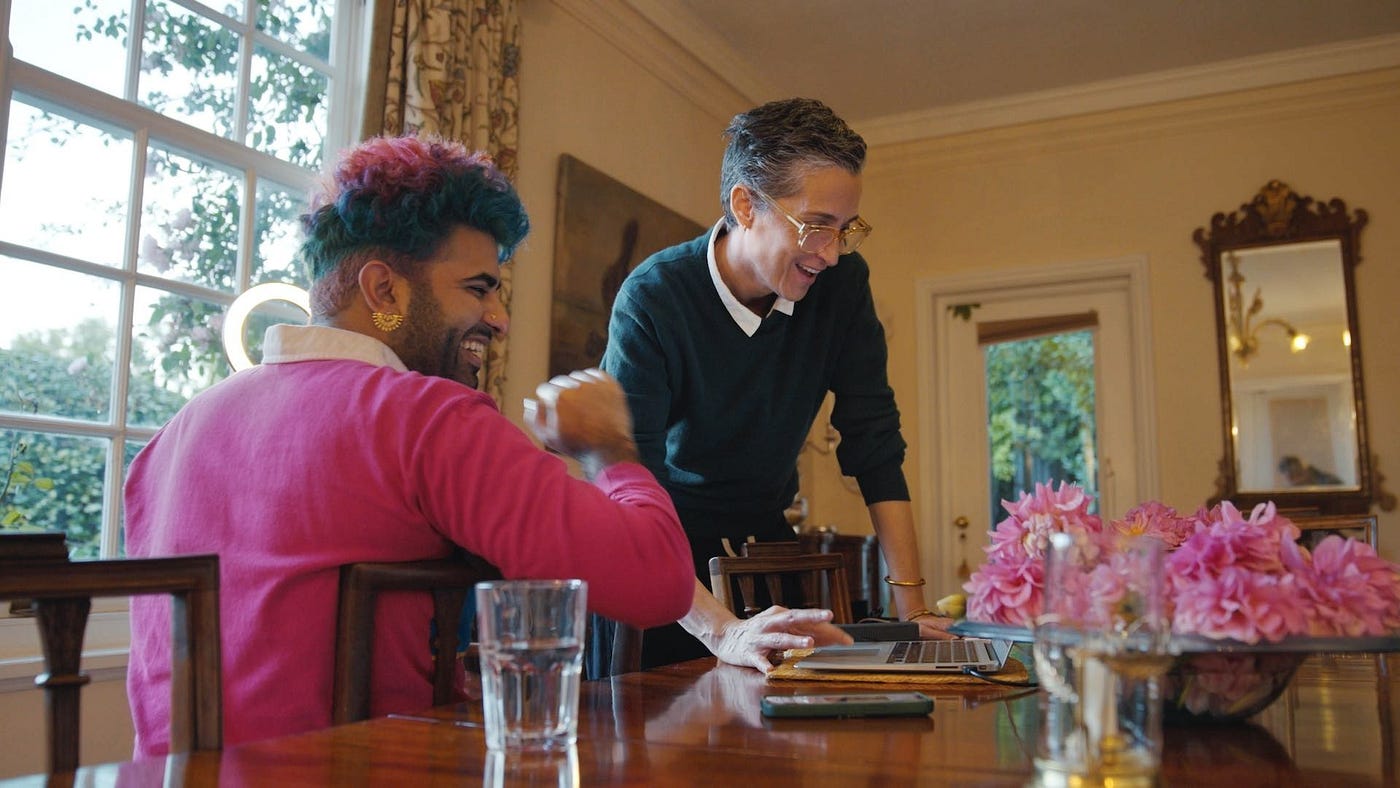
Alok opens with Vaid-Menon inviting viewers to consider what lives outside their frame of vision, foreshadowing later calls to see beyond the reductive concepts that constrain our lives. The film uses interviews, clips from media appearances, archival footage, and behind-the-scenes shots to present arguments, establish cultural relevance and convey Vaid-Menon’s work and life. But its subject defies the film’s conventional style.
Their presentation through words, make-up, clothing, and body language also serves as an invitation to transcend conventional binary thinking. Vaid-Menon views Urvashi Vaid — their aunt — as an early role model.
“One of the many lessons that she taught me is that we have to learn how to love ourselves as queer people more than the queerphobic society could ever hate us,” they told me in an email. “She wasn’t waiting for the conferral of legitimacy or freedom, she was living it. I try my best to practice that as well.”
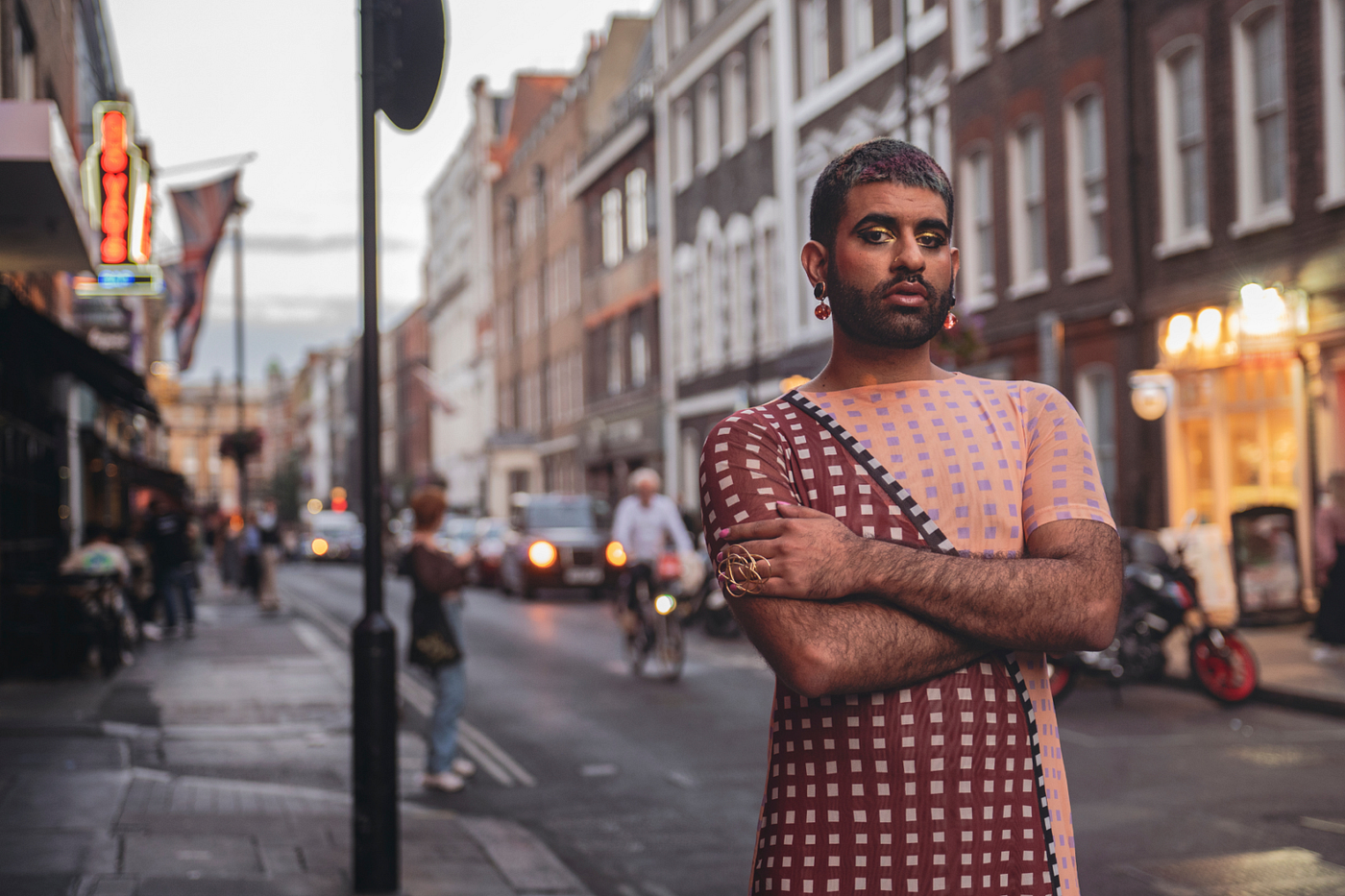
Vaid-Menon hopes the film will help people understand what it means to be nonbinary. In an email, they said that it “isn’t just a gender identity, it’s an orientation to the world that seeks to move beyond artificial binaries and dichotomies. A nonbinary approach seeks to find harmony where many see dissonance and insists on a shared, common humanity.”
At times I wished the film had deployed a more offbeat style and showcased more of Vaid-Menon’s performances, along the lines of Marlon Rigg’s 1989 film, Tongues Untied, with its brilliant use of poetry and performance. I would also love to see Alok expanded to a longform film to further amplify these important voices.

But I’m glad the film gave primacy to the voices of Vaid-Menon and others, including Dylan Mulvaney and Chani Nicholas. Vaid-Menon conveys how the normalization of gender binaries alienates people from their authentic, multifaceted selves and from community, and they probe their own insecurities and emotions to deconstruct and defy the logic by which gender binaries operate.
‘There Are Things To Do’ film
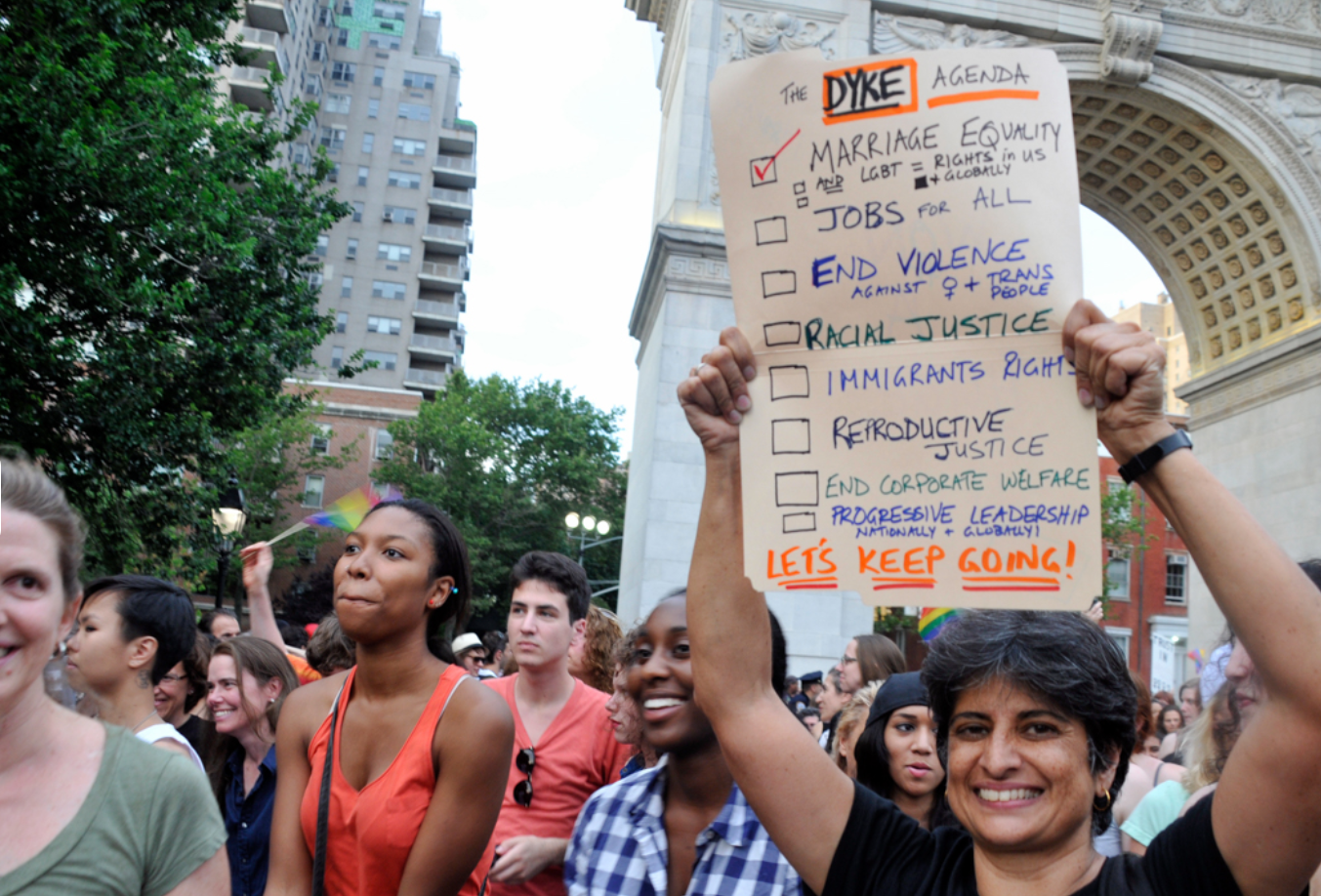
There Are Things To Do is a tribute to Urvashi Vaid, who The New Yorker called the “most prolific LGBTQ organizer in history.” Vaid contributed to the movement in ways that reverberate today. She served as Executive Director of the National Gay and Lesbian Task Force, started the first lesbian political action committee (LPAC), wrote the book Virtual Equality on the future of the movement, and worked as a tireless fundraiser, institution builder, and community organizer.
The film’s opening sequence establishes just how central Vaid was to the early movement. As President George H.W. Bush speaks publicly in 1990 about AIDS for the first time, Vaid holds up a sign reading, “Talk is cheap, funding is not,” before security perfunctorily escorts her from the room. Her image appears on the covers of Ms. Magazine, The Advocate and Outweek, and she delivers a fiery speech to an estimated million people at the 1993 March on Washington for Lesbian, Gay and Bi Equal Rights.

The film goes on to focus on her local life and work in Provincetown, MA, her longtime relationship with partner Kate Clinton, and her community-driven ethos. While it conveys the range of her activism, it says less about her ideas and strategies, some of which would become controversial by the 1990s. Vaid urged the movement to focus on the transformation of, rather than integration into, mainstream culture and to recognize its own relationship to interconnected issues of gender, race and class.
Vaid embraced the radical roots of a movement that let people formulate different identities and imagine different ways of living, an ethos still influential on myself and others who came of age in the mid-1980s Bay Area. Alok — which positions trans and nonbinary people as agents of change who can help free everyone to live differently — draws on that same liberatory spirit.
“Showing these films together is a way of honoring queer legacy and queer ancestry. So often gender non-conforming people are dismissed and delegitimized as new, when we have always been here,” Vaid-Menon told me. “We often call queer individuals and cultures ‘unprecedented,’ but actually they/we are a continuation of an unfurling legacy.”
// Alok and There Are Things To Do screen on June 28. Directors Hedison and Mike Syers, along with Alok Vaid-Menon, will hold an onstage conversation after the films. More details
Laura Stein is a San Francisco-based writer.
The Bold Italic is a non-profit media organization, and we publish first-person perspectives about San Francisco and the Bay Area. Donate to us today.



